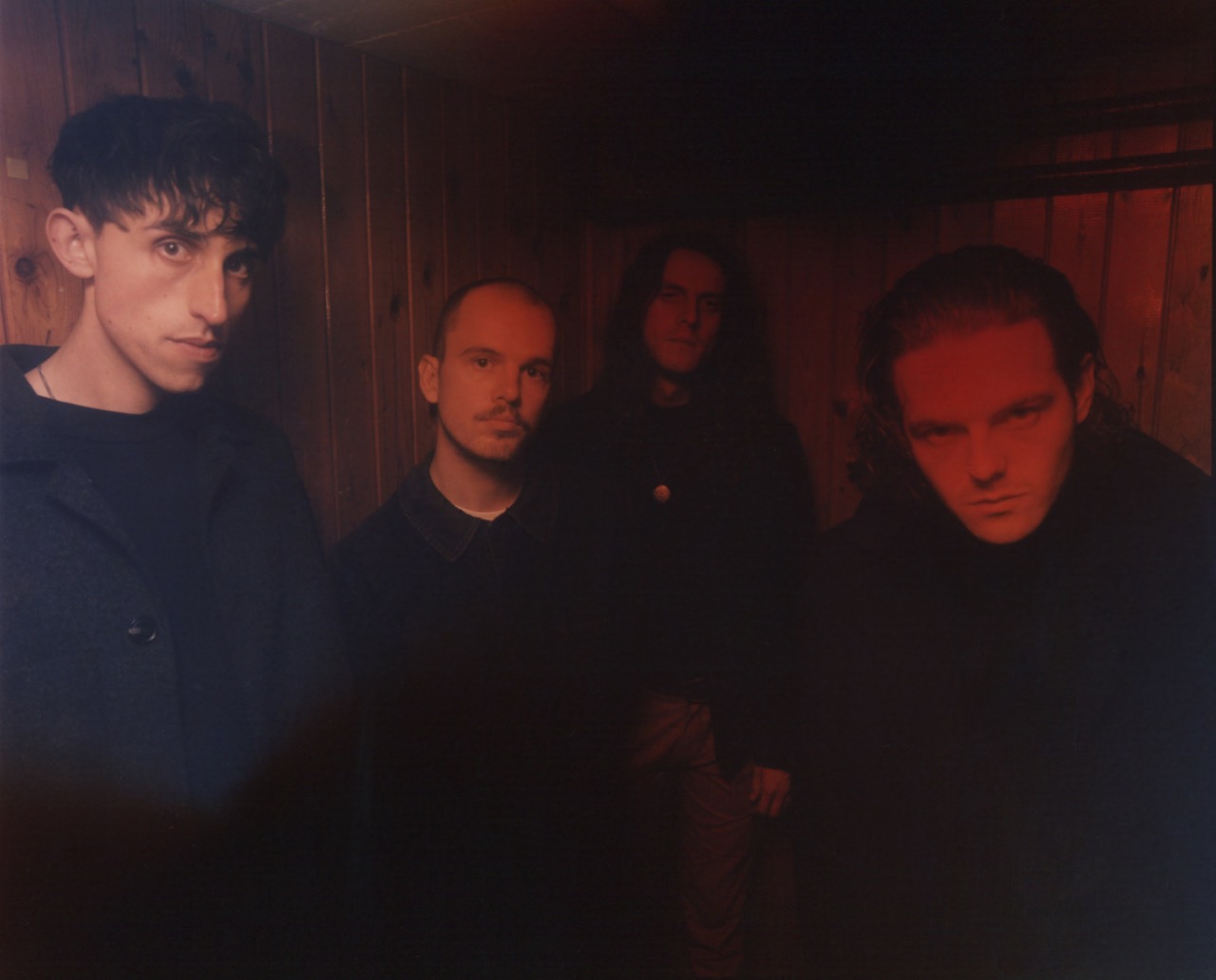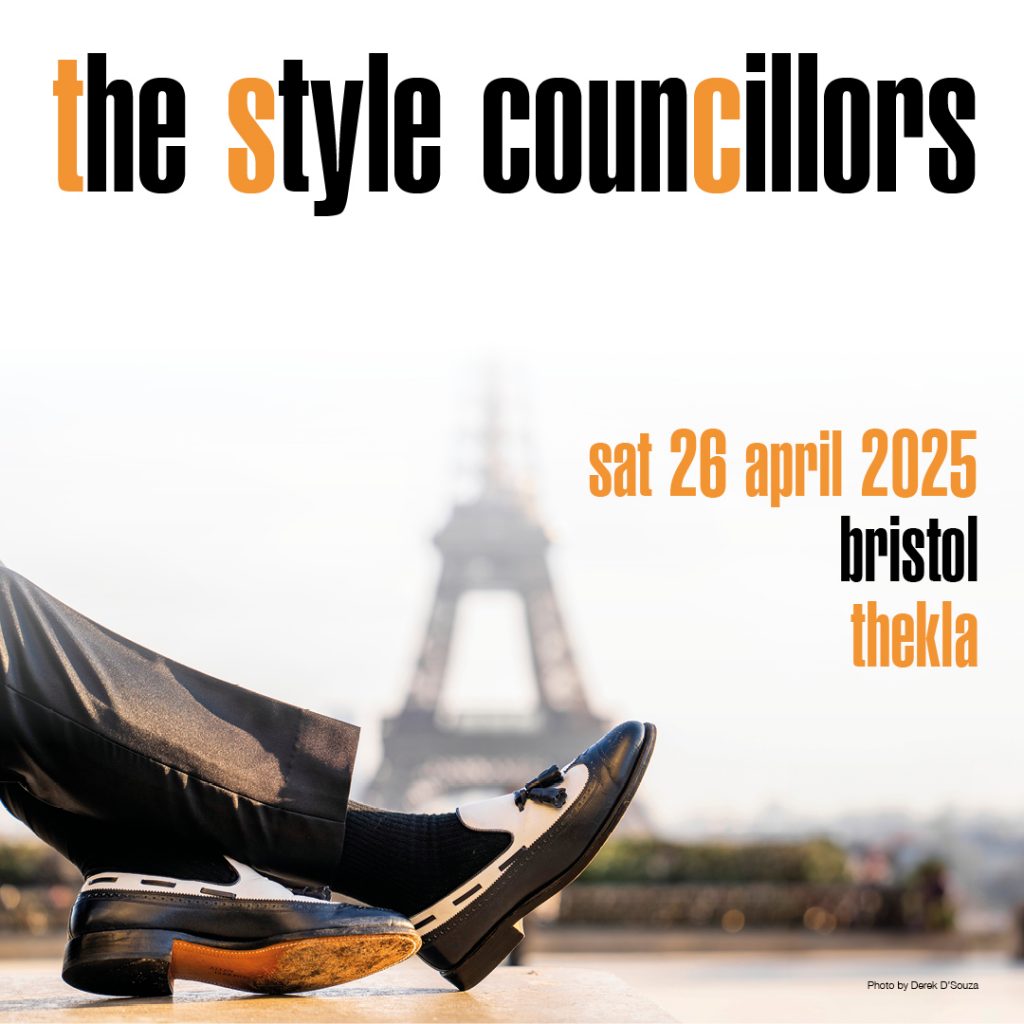English alt-rockers The Blinders are coming live to Thekla on Thursday 7th March 2024, tickets are on sale Friday 3rd November via Alt Tickets.
It’s no understatement to say that the no0on of perspec0ve has been at the forefront of The Blinders’
minds with vanishing points of the heart and soul giving depth and texture to their Nick Launay and ‘Atom’
Greenspan co-produced third album, the aptly 0tled, Beholder.
“For the songs on this record, I would imagine these scenes playing out inside my head,” explains singer-
guitarist Thomas Haywood, “and I would describe the character within each one as The Beholder. It made
me think about how you understand life from where you witness it. That sense of seeing is believing and
understanding through what you’ve seen. This record is about leaving adolescence and becoming an adult,
so your experience and your perspec0ve change.”
Having almost wrecked his own vision due to the black, mask-like warpaint which he used smear across his
nose, cheeks and forehead – and then sweated into his eyes – when the Doncaster band toured their first
two albums, the poli0cally-charged debut, 2018’s Columbia, and 2020’s seduc0vely sinister Fantasies Of A
Stay at Home Psychopath, Haywood is par0cularly aQuned to the nature of vision, and how it helps to
define the experience of audiences and creators alike.
“Ambiguity plays a massive part in the enjoyment of music or art,” he declares of the shiSing musical visions
Beholder offers. “You rely on your imagina0on to fill in some of the gaps, so it’s always dependent on the
individual. Some people have massive reac0ons to things, others don’t, it’s down to each person’s
imagina0on. That is why art shouldn’t be served up on a plate, locked in black and white. It should be open
to interpreta0on.”
The Blinders’ third album certainly revels in crea0ve freedom, in no small part because the now
Manchester-based group’s line-up changed in the build-up to making Beholder, though they have reveled in
that ambiguity and flux that upheaval generated.
ASer their previous drummer leS the group in 2020, Thomas ‘Cass’ Castrey who used to be the band’s tech
on the road took over the drum stool full 0me, while keyboard player Johnny James was also recruited as
Haywood and Doncaster school friend and fellow Blinders’ founder, bassist Charlie McGough, realised the
interrup0on in their band’s life opened more possibili0es than the doors it closed.
“It was an opportunity to expand,” reasons the singer. “Why stop at just replacing someone, or even trying
to do something that you are not going to be able to repeat? Why not just do something different? So it was
an opportunity to take ac0on and make something of it. Cass and Johnny joining massively changed the
kinds of songs we could write. There was so much more room musically, so it was a really, really exci0ng
0me. It’s been like a pendulum; we’ve gone into the chaos of upheaval and now it’s swung back as we’ve
found a way to come together.”
As the line-up solidified – the group were also aided on this album by former Cabbage and Twisted Wheel
guitarist Eoghan Clifford – The Blinders engaged in an intense period of demoing as many song ideas as they
could fully realise, as they began to forge and understand the new musical rela0onships that were
blossoming within the group (some of that process was captured on 2021’s experimental Electric Kool Aid
Parts 1 & 2 EPs). Once they found their confidence and a shared assuredness of intent as a group, these
ideas developed to eventually become Beholder.
Able to make the most of their Manchester base at Brunswick Mill to work on music five-days-a-week,
before builders then snatched this important hub from the city’s musical community (“No one would use it
but musicians, then when musicians get it looking good fucking property developers buy it and kick you
out,” explains Haywood of the loss of the 19th century, previously derelict factory), around 20 tracks we
readied for considera0on for a new record. However, when the four-piece took a step back from their
instruments and considered the body of music before them, this wider perspec0ve made them realise that
there were key themes running across the work which would define the album.“We found ourselves wri0ng a lot of sister songs,” recalls Haywood. “You can’t help but explore an idea, so
we would write several songs around it and then move on to another one. We were really me0culous and
strict with ourselves this 0me, really conscious about exploring the details. I remember Charlie and I walking
to prac0ce one day and we agreed we weren’t going to be sen0mental, everything could be ripped up and
taken apart because we now had different voices bringing ideas to the table. So when we emerged at the
end of this process with ten songs that really stood out and were different from the others, we knew we
had an album.”
ASer Nick Launay and ‘Atom’ Greenspan agreed to produce the album in Los Angeles, The Blinders
decamped to a stripped-out coQage in rural Wales to drill down and create a final, focused demo that they
could take to America as a blueprint of Beholder.
“The Wales trip was 0ght,” explains McGough. “When you’ve got a lot of songs you don’t feel like you know
any of them too well, and you have to find the record within them. That 0me brought everything together.
We sat down on the last night of that trip and it became apparent quickly we all felt there were seven or
eight core songs that had to be on the record. That trip was really important because although we recorded
in LA, it doesn’t sound like an LA record. The sound was defined in that coQage.”
First track ‘Ceremony’ shares a frene0c energy with The Blinders’ previous albums, but with Launay and
Greenspan’s astute rock produc0on revealing greater depths, even this cyclonic opening salvo,
demonstrates the wider atmospheres, bristling emo0ons and sophis0cated textures that sprawl through
Beholder. Tracks like ‘Brakelights’, ‘Always’ and ‘Swallowing Sta:c’ chime with fuzz-drenched vigour and
bright melodies, but there are also intoxica0ng sonic shadows accompanying the blistering burns.
‘Nocturnal Skies’ revels with a yearning, hopeful spirit; ‘Iggy Got Camaro’ has a seduc0ve whirl that
emerges from a beguiling, almost music box melody; while ‘Waterfalls Of Venice’ marries the band’s angry
social observa0ons with a personal despera0on as it sweeps rollercoaster-like through minimal then
maximalist twists and turns.
“What drew me to join this band was its intensity. There’s two poles to it,” explains keyboard player James
of his personal Blinders debut. “You’ve got this carnal, ferocious side driven by this visceral energy and then
you’ve got something much more considered, more brooding or menacing but in a beau0ful way. When I
joined, I really wanted to lean into that laQer side, dial up the atmospheres and communicate with that
ghost in the agc.”
This record’s recording certainly helped to expose that side of the group – “Every day we did a new track
preQy much, “recalls Castrey of the sessions. “It was very exci0ng and very energe0c, an absolute thrill” –
but an evolu0on in Haywood and McGough’s lyrics has truly brought The Blinders’ more expressive side to
the fore. Songs like ‘While I’m S:ll Young’ and the redemp0ve, horizon-stretching closer ‘All I Need’ reveal
a vivid and raw emo0onal landscape.
“I was wri0ng these lyrics at a 0me when there wasn’t a lot of society going on, right in the middle of
lockdown, so you have to look somewhere else,” notes the vocalist of the shiS away from his more overtly
poli0cal subject maQer to the more internalised expression of pain and anger. “As quickly as good things
happen, so do bad things,” he notes sagely. “My contribu0ons to records began at a 0me where every
aspect of life that you’re told is going to be difficult to deal with all happened at once. It proved a really
crea0ve period for me, because escape is a key aspect of this.”
In a way, songwri0ng became a crucial way of dealing with Haywood’s experience of loss, par0cularly
around a 0me when the subject was also plastered all over the news daily due to the pandemic’s impact.
“Why do I write every day? I have to write every day because it makes me feel beQer, it’s expelling
something,” explains Haywood. “So I think a big part of the album is loss, and loss is a big part of growing
out of childhood and into adulthood, right? You experience death for the first 0me, especially of loved ones
who helped to sculpt the person you are. That is life, it’s what everyone is expected to deal with, but no one
can prepare you for it. Being able to take a step back from it now, I realise the lyrics are wriQen from the
perspec0ve of someone moving through that change. And songwri0ng-wise, darkness is really easy to tapinto, musically and lyrically. There’s just something powerful and emo0ve about those feelings that speak to
you in a way nothing else can – especially when you’ve got it all going on.”
This dive through shimmering, darker emo0ons, was given added buoyancy by Haywood’s reading maQer,
as song 0tles such as ‘At Any Hand But Hers’ hint.
“I was drowning myself in Byron, that’s where all the melancholic comes from,” he now laughs. “Shelley and
Keats too. I was just obsessed with their work. I was sort of building this dark landscape around myself with
their wri0ng and I ended up going super far in. I couldn’t help myself.”
With all these shiSing dynamics – line-up, sounds, lyrics – there is the poten0al danger that some groups
might lose sight of their iden0ty or succumb to innova0on for innova0on’s sake, yet Beholder’s triumph is
that while it has truly moved The Blinders forward, redefining their parameters and possibili0es, on a
fundamental level the record remains true to their core ar0s0c values as a band. Perspec0ves may have
changed for Beholder, but The Blinders’ ins0ncts remain true.
“I can’t think of a beQer way of explaining this album other than saying, it felt right. Everything just felt
right. This is who we are as a band,” declares Haywood. “A lot of these songs share a very similar emo0onal
language to our earlier work, though before the first place we would go to would be quite angry. We
haven’t leS that, but we can go to other places now too.”
Perspec0ves may change, but The Blinders’ vision is joy to behold





